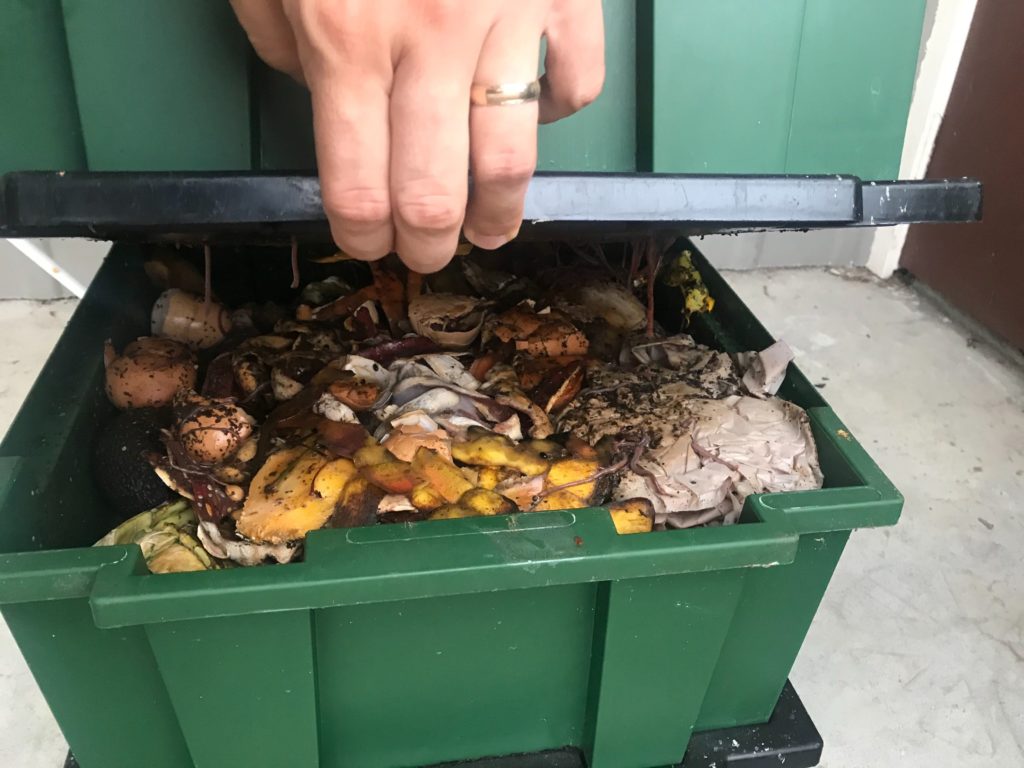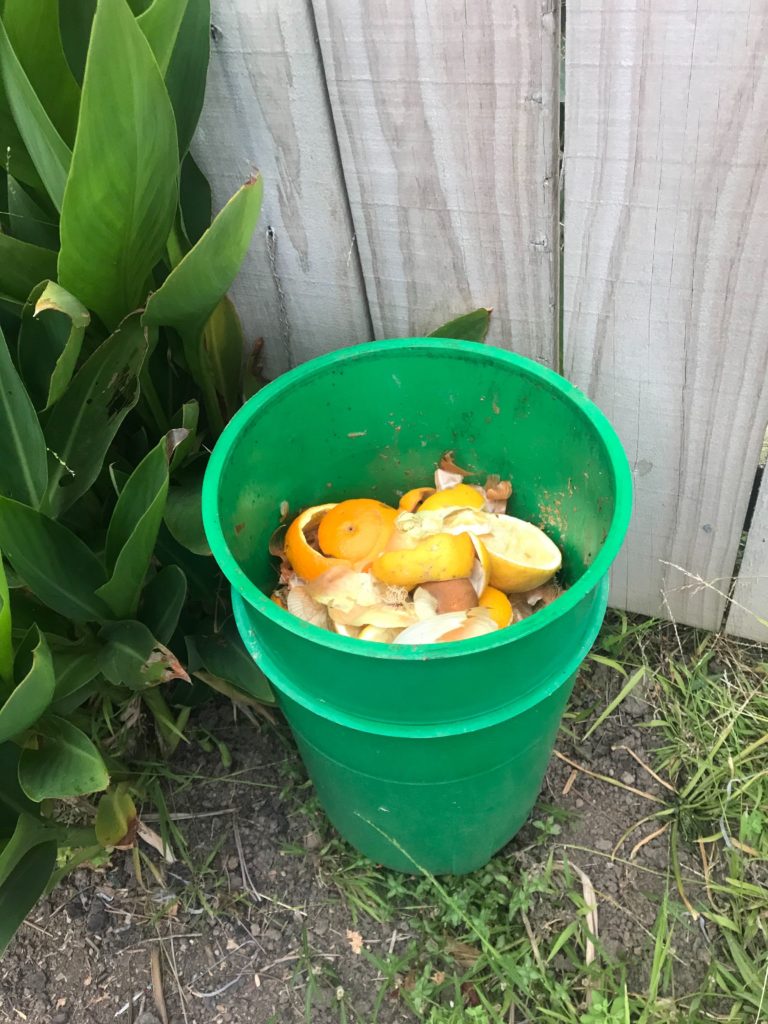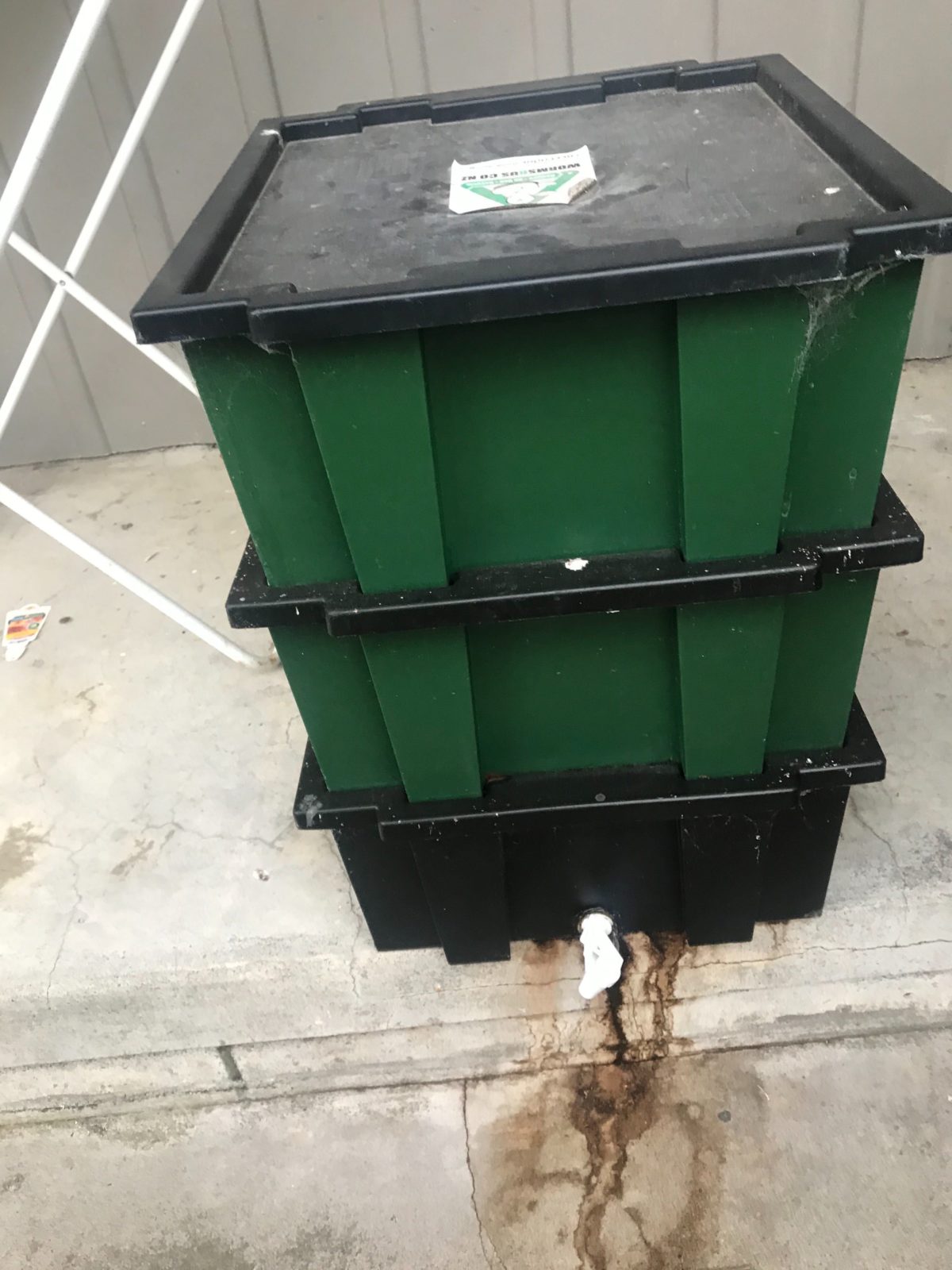This is a short tutorial on how a couple of people went from an usual, average rubbish production a few years ago to one 40l rubbish bag per month. I’m sure you remember my post about rubbish on how we affect other countries and ourselves. This one will help you optimising your rubbish bin a little bit more.
The idea of the huge rubbish reduction came after one of the visits to New Zealand’s big supermarkets PAK’nSAVE. When you go through the veggie section you’ll see plastic bags on every single box of veggies or fruit. And the majority of … let’s call them uneducated people, use them on everything. You will see a trolley sometimes filled with plastic bags, bag for one orange, for 2 bananas, one kiwifruit, a bag to pack all the fruit together and it’s just sad. All of those plastic bags go to the landfill, there’s a very few soft plastic recycling collection points but more below.
How can you reduce rubbish
Well the rule number one is asking yourself a simple question – can I buy it without a plastic bag. I understand that it’s inconvenient and sometimes you mix tomatoes with potatoes and oranges and everything is a mess in your trolley, but do you actually need that plastic bag. You’ll say “my veggies will touch the trolley, will touch the conveyor belt at the checkout. But you will come back home and you will wash the fruit and veggies anyway and most of the veggies you will boil or cook in high temperature anyway. So what’s the problem? Try once maybe you will not die of unknown viruses and you can try again.
Make an effort. This is rule number two. We’ve been shopping for many months now and avoiding plastic bags but there’s a lot of work to do so. And few months later we have trained our supermarket’s staff and they don’t ask questions anymore, they don’t do any excuses, they just do what we say. For instance – you go to the fish section and want a fish fillet – tell them “please don’t use plasic bag, please wrap it in wrapping paper you have behind you, just like in old days fish was wrapped in the newspaper”. You’ll go to deli section, grab paper bags from the neighbouring bakery section and ask them to use paper bag instead. If you can afford it – purchase the products that are packaged in fully recyclable material (most plastics are not recycled but go to landfill). Try to buy milk in a glass bottle, not a plastic bottle, tins are good too. Anything that is wrapped in soft plastic will not be recycled by default so the less you buy it the less rubbish you will produce.
I still have food scraps enough to fill my rubbish bag
Here comes Mr Compost. If you have a little bit of garden space, get yourself a compost bin. It’s the easiest way to throw away most of the food scraps. Put it away from your windows, in the corner of your garden and use a smaller container at home to collect food scraps and transfer it to the compost bin once a day. This will not only help the environment but also will reduce the smell in your normal rubbish bin (the food won’t compost at your home) and will produce a great compost for your garden if you like gardening. But that’s the easy part. What if you don’t have a garden.
Well, if you like me live in a townhouse and there’ve virtually no garden at all, get yourself some pets. And by pets I mean worms. Worm farms are not that expensive and once you get worms you rarely need to replace them (we did it once so far over 2 years). Worms eat very specific food only which is usually fresh (uncooked) vegetables and fruit that are not acidic and nothing that is high in protein (e.g meat, fish etc). However, those cheeky buggers will go through shizzloads of food daily. On a medium worm farm they can eat up to 1kg of veggies and they turn it to literally a soil. So once per few months you take one worm farm compartment and throw it away in yours or someone else’s garden and it becomes soil. After a couple of exercises like that, you will, however, need to top up worms as they will happily escape with composted food 🙂 Worm farms are not smelly as a lot of people think and only when you empty the bottom compartment of the worm farm you retrieve composted liquid which smells like Rotorua (old egg or sulphur) but is a perfect fertiliser for any plants including plants at home.

Then you’re left with anything acidic – lemons, oranges, meat etc. For that, we use a bokashi bin. Bokashi bin works similar to compost bin but it doesn’t have to be placed on the grass. It can be moved anywhere. The key of bokashi bin is something you add to accelerate composting. In some cases, it’s called bokashi spray, in some cases bokashi bran (which is mostly bran) but in general, it’s something to add that speeds up composting. We use bran and it works really well because it prevents the smell. Then every couple of days/weeks you need to make sure that you compress your bokashi bin with a given tool. This way the composting works quickly and the food scraps take little space. The composted bokashi mix is another addition to your or someone else’s garden. In fact, I did see bokashi compost for sale so maybe you can even make money.

The next big thing is bulk buy – you can buy most of the products in bulk buy shops like Bin Inn in Auckland. All it takes is to bring your own containers that they will weigh for you and pack your shopping into those containers. Zero waste. You can buy spices, snacks, cereal, flour, sugar, salt, really a lot of stuff. If you connect it with the farmers market and your own bags you will barely bring any rubbish home and that’s already huge progress.
Lastly, recycle. Even if you know that a lot of plastics in countries like New Zealand go to the landfill, recycle because this way at least you give the opportunity to recycling stations to place plastics together and secure them before going to landfill. You can even recycle soft plastics – in New Zealand, there are a very few places where you can do it but we separate the little number of soft plastics from packaging that we have and approximately once a month we go to the Warehouse in Sylvia park where you can find soft plastics collection bin. What is happening with the soft plastics – we don’t know but at least we hope that they do not end up in the sea.
As you can see there are many ways how you can reduce your rubbish production. We went down to less than 5l of landfill per person per week and we would love to increase it. We still produce probably half of 200l recycling rubbish bin per month but we do try to avoid plastics at all so we mostly got bottles and tin cans. You don’t have to make such a big step straight away. It took us weeks if not months to get used to is and master it but right now a lot of people asks me how we do it. And every step matters because if you can reduce your rubbish production from a full red bin (120l) to half bin a week – that’s more than 3,000l of rubbish less just for your house. And can you imagine that multiplied by the entire city? Let’s dream together.
